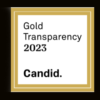In a poll shared by the Washington Post last year, it was found that 67% of surveyed adults in America believe that climate change is a serious problem. Why don’t people believe the scientists that have been trying to express how detrimental climate change will be?
One of the reasons why many Americans may not believe in the disastrous effects of climate change, is because the environment has not been treated as a priority.

The 1970’s are often referred to as the era of environmental movement. The public was staring into the face of oil spills, a hole in the ozone layer, and dwindling populations of beloved animals. There was immense pressure for politicians to take environmental action. The result was a wave of pro-climate policies like the Clean Air Act, Clean Water Act, and Endangered Species Act. The 1980’s and 90’s brought a period of research to determine the impact of pollutants put into the atmosphere, and the result was something that had been theorized since the 1800’s, emissions create a climate-altering greenhouse effect. The scientific findings were almost immediately opposed by groups that profited the most from pollution.
Former Republican senator Chuck Hagel has recently told of how fossil fuel companies fed false information to Congress in order to fight climate legislation in the 90’s and 2000’s in a PBS docuseries entitled The Power of Big Oil. In the series, Hagel shared the statement “What we now know about some of these large oil companies’ positions … they lied.” The series shares how when the claims of climate change became backed by credible sources such as the IPCC and NASA, fossil fuel companies turned to using misinformation to back their agenda. They also turned to the narrative that switching to renewable energy would have immense economic impacts. Advertisements were run that claimed a carbon tax would cost the average Oklahoma household $500 a year. Not only was false information being spread to politicians, it was being spread to the general public.
In the 2010’s, big oil and gas were doing everything to keep their stake in the energy market. Fighting pro-climate bills and legislation that would favor renewable energy was necessary to achieve this. Over $153 million was spent on advertisements that promoted coal, oil and gas. In 2014, over $64 million was given to political candidates, parties and outside groups; 90% of this went to republicans. The decisions on policy are not motivated by science and facts. If they were, there would not be this much room for fossil fuel companies to be invested in politics.

The bad guys are not just big oil and gas. A recent NYU study has revealed that big meat and dairy companies are also spending millions on lobbying against climate policies. They found that six of the big meat and dairy groups have been lobbying against the Clean Air Act, cap-and-trade policies, and regulations that would require reporting emissions. Agriculture is one of the biggest polluters, so the vested interest of these companies in blocking pro-climate policy is not surprising.
The blunt reality is that the future of emissions and environmental action rely in the hands of socio-political players. The good news is, things are starting to look up. Joe Biden passed the biggest climate bill ever this year. Big oil and gas companies are starting to release plans of how they plan to cut their emissions, a nod to compliance with change. Billionaires such as Yvon Chouinard and Jeff Bezos are pledging to donate their wealth to fighting the effects of climate change. America has come a long way in the last 20 years on environmental policy and public opinion of climate change. However, there is still more to be done. We have no choice.








